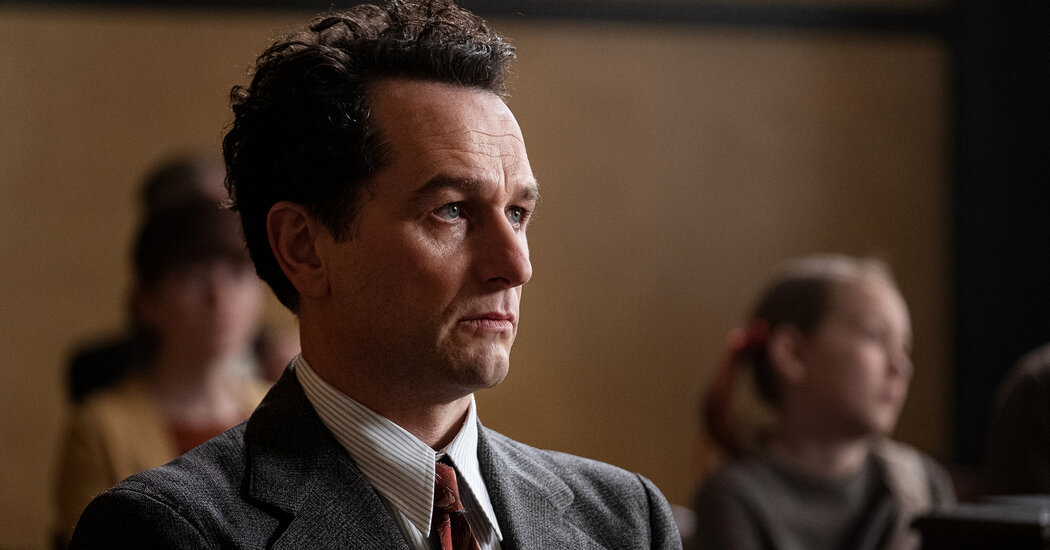
‘Perry Mason’ Season 2 Premiere Recap: Keeping It Civil
03/07/2023New season, new showrunners, same Perry. Who knew that a show with such a grisly beginning could wind up becoming such great comfort viewing?
Send any friend a story
As a subscriber, you have 10 gift articles to give each month. Anyone can read what you share.
By Sean T. Collins
Season 2, Episode 1: ‘Chapter Nine’
It’s been nearly two and a half years since we last saw Perry Mason. In that time we’ve weathered (sort of) a global pandemic, a presidential election and an attempt to overturn that election. We’ve also seen the purchase of HBO’s parent company, WarnerMedia, by Discovery, along with all the changes that the newly minted chief executive David Zaslav has wrought for prestige TV’s most storied brand.
Even the “Perry Mason” showrunners have been swapped out. Goodbye, Rolin Jones and Ron Fitzgerald, who have moved on to other creative endeavors; hello, Jack Amiel and Michael Begler, creators of the Steven Soderbergh-directed period piece “The Knick.”
The times, in short, have changed.
Judging by its Season 2 premiere this week, though, “Perry Mason” hasn’t noticed. The cast, led by Matthew Rhys in the role made famous by Raymond Burr decades earlier, is largely intact. So is the jazzy score by the trumpeter and composer Terence Blanchard, a million miles removed from the sound of pretty much any other show on television. Ditto the overall vibe of rumpled, boozy Los Angeles noir, pitting the wealthy and sinister against the beaten-down but mostly noble working stiffs who make up Perry and his peers.
Funny, isn’t it? A series that began with the mutilated corpse of a murdered infant has become a kind of comfort food.
Still, it’s fair to say the time away has not been kind to Mr. Mason. For one thing, he has already retreated from the field of criminal law, despite having successfully navigated his very first, and very complicated, case as a defense attorney during the previous season: the defense of a bereaved mother, Emily Dodson (Gayle Rankin), from the charge of murdering her own baby.
The Return of ‘Perry Mason’
The second season of the HBO series, which is based on an Erle Stanley Gardner book series that inspired a classic TV courtroom drama, begins on March 6.
Through a harrowing dream sequence, we learn that Dodson has since drowned herself after months of sending unanswered postcards to Perry demanding to know what the point of it all was. Perry has no more of an answer to that than Emily did; perhaps that’s why he races a motorcycle he was given by a client until he crashes. It’s not as if he has his family farm to give him solace: That was sold long ago to Lupe (Veronica Falcón), Perry’s enterprising bootlegger ex-girlfriend.
Perry’s current and decidedly lower-stakes focus now is civil law, and his most recent gig is representing the grocery store impresario Sunny Gryce (Sean Astin) against a former employee (Matt Bush) who invented many of Sunny’s successful sales techniques and then used them to start his own store. Perry has no taste for hanging this poor guy out to dry, but he is a very good attorney, as it turns out, and he does what he has to until a favorable verdict is won.
The job seems good enough for Della Street (Juliet Rylance), Perry’s assistant and de facto co-counsel, who takes advantage of their steady stream of paying clients to hire an actual secretary (Jee Young Han) to do the work she herself was once tasked with. The civil case work is much less beneficial, however, to the Black ex-cop turned private investigator Paul Drake (Chris Chalk), whose new baby demands a regular source of income that Perry is no longer able to provide. Perry’s former partner, Pete Strickland (Shea Whigham), is able to help by providing Paul with some surveillance work for the ambitious (and, like his friend Della, secretly gay) district attorney Hamilton Burger (Justin Kirk) … but Paul’s family still makes a point of inviting Perry to the cookout when his birthday rolls around. Paul’s wife, Grace (Diarra Kilpatrick), at least, is aware of where his bread can truly be buttered.
While Perry quietly rages against his new role as the defender of the petit bourgeois and Della entertains the offer of a date from a woman she encounters at a restaurant — whose gaydar, it seems, is next-gen — the case that will seemingly dominate the season unfolds. A scion of privilege named Brooks McCutcheon (Tommy Dewey), son of a ruthless magnate named Lydell (Paul Raci), spends his days choking his sex partners behind his wife’s back, his nights torching the speakeasy boats of the competition, and is obsessed with trying to convince somebody, anybody, that there is an audience for baseball in Los Angeles. (He is at least two decades ahead of his time in this respect, at least.)
Both his sinister father and the crooked Detective Holcomb (Eric Lange) warn him to tread softly, but that doesn’t save Brooks’s life, as we learn when a child in a creepy mask discovers his corpse just before the credits roll.
In short, you’ve got everything you would want a Prohibition Era murder mystery to include. Bootleggers, real-estate swindlers, hard-luck investigators, life in the closet, people bearing coins with strange insignia (a star-and-crescent, to be specific), the sense that Los Angeles is an ephemeral fantasyland that nothing so respectable as Major League Baseball would want anything to do with — it’s all there.
So are the charming characters — often charming despite themselves — that made the show’s first season a success. Rhys’s resting sour face makes him perfect for Perry, the disgraced veteran of the Great War whose skill at ferreting out other people’s deceptions has made him, in turns, a great detective and a rock-solid lawyer. Della’s competence and ebullience make her equally indispensable to both Perry and Los Angeles County’s most eligible bachelorettes. Drake is a good guy and a good cop in a system with no practical use for either.
On the shadier side of the street, the McCutcheons are a solid substitute for the pack of rich evangelical elders who drove the first season’s story along. And it’s fun to trace the parallels between Sunny Gryce and Lupe, both of them thriving in the quasi-legal shadow that capitalism inevitably casts.
Working off a script by Amiel and Berger, the director Fernando Coimbra — with Blanchard’s invaluable help — crafts a convincing and familiar 1930s Los Angeles atmosphere for this motley crew of strivers and sad sacks to inhabit; it truly is hard to notice the creative handoff that has occurred between seasons. We’re back in business with Perry, and so far, business is good.
From the case files:
No graphic violence. No nudity. No explicit sex. Certainly no murdered babies. There’s a distinct ratcheting-down of the taboo from the first season premiere to the second.
Isn’t it funny how Della’s dynamism leaves you rooting for her to betray her current partner and cheat with the glamorous woman she meets in the ladies’ room at lunch?
“We’re where everyone wants to be!” Brooks hollers when his ballplayer partner communicates the league’s reticence to relocate any teams to Los Angeles. “You think anyone dreams of moving to [expletive] Cincinnati?” Well, that depends, Brooks. Has Skyline Chili opened yet?
The closing credits, which on “Perry Mason” take on the role of opening title sequences on other shows, feature sand castles being washed away. If that isn’t the core anxiety at the heart of the California dream, I don’t know what is.
Site Index
Site Information Navigation
Source: Read Full Article


